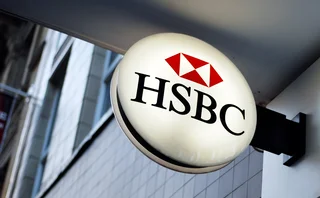
JP, Goldman and TD surge in FX forwards as Citi falls back
Counterparty Radar: Citi drops to fifth, losing a third of market share with US mutual funds

JP Morgan, Goldman Sachs and TD Securities surged in the rankings of foreign exchange forwards dealers to US mutual funds as Citi’s book of business continued to crumble, losing almost a third of its market share.
US funds reported $920 billion in aggregate positions in Q4, with JP Morgan and Goldman Sachs rising to third and fourth place, respectively, in terms of dealer volume. JP Morgan’s
Only users who have a paid subscription or are part of a corporate subscription are able to print or copy content.
To access these options, along with all other subscription benefits, please contact info@risk.net or view our subscription options here: http://subscriptions.risk.net/subscribe
You are currently unable to print this content. Please contact info@risk.net to find out more.
You are currently unable to copy this content. Please contact info@risk.net to find out more.
Copyright Infopro Digital Limited. All rights reserved.
As outlined in our terms and conditions, https://www.infopro-digital.com/terms-and-conditions/subscriptions/ (point 2.4), printing is limited to a single copy.
If you would like to purchase additional rights please email info@risk.net
Copyright Infopro Digital Limited. All rights reserved.
You may share this content using our article tools. As outlined in our terms and conditions, https://www.infopro-digital.com/terms-and-conditions/subscriptions/ (clause 2.4), an Authorised User may only make one copy of the materials for their own personal use. You must also comply with the restrictions in clause 2.5.
If you would like to purchase additional rights please email info@risk.net
More on Markets
How investment firms are innovating with quantum technology
Banks and asset managers should be proactive in adopting quantum-safe strategies
Banks hope new axe platform will cut bond trading costs
Dealer-backed TP Icap venture aims to disrupt dominant trio of Bloomberg, MarketAxess and Tradeweb
The future of fixed income
Apac investors’ use of fixed income products, the fast-track evolution of the UBS fixed income proposition and the innovations likely to be seen by 2030
Unlocking opportunities in the SRT boom
Exploring the opportunities emerging in SRTs, also considering broader SRT developments and structural innovations
Franklin Templeton dethrones MSIM as top FX options user
Counterparty Radar: MSIM continued to cut RMB positions in Q3, while Franklin Templeton increased G10 trades
HSBC loses FX forwards market share with EU funds
Counterparty Radar: UK bank reported 6% drop in notional volumes with Ucits funds in H2 last year
Franklin Templeton steps back into FX options
Former biggest user of the instrument among US mutual funds returns with $7.6bn of USD/JPY strategies
Equity vol convexity selling gains momentum
Risky hedging strategy is attracting interest but can investors learn from past convexity blow-ups?







